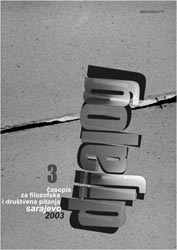BOSNA I HERCEGOVINA NA KRAJU DRUGOG SVJETSKOG RATA I U POSLJEDNJOJ DECENIJI XX VIJEKA
BOSNIA AND HERZEGOVINA AT THE END OF WORLD WAR II AND THE LAST DECADE OF THE TWENTIETH CENTURY
Author(s): Enver RedžićSubject(s): Philosophy
Published by: Akademija Nauka i Umjetnosti Bosne i Hercegovine
Summary/Abstract: The paper has two sections of crucial significance for the recent history of Bosnia and Herzegovina. The first analyzes the period beginning with the end of World War II, when Bosnia and Herzegovina emerged within the National Liberation Movement as a historical political subject. This period, marked by a socialist order and general, primarily material and economic progress, lasted until the beginning of the last decade of the twentieth century, when SFRY vanished from the political scene as the Communist social system collapsed in Eastern and South-Eastern Europe. The new period was characterized by war in the countries of former Yugoslavia, in which Bosnia and Herzegovina was subjected to Greater Serbian aggression, genocide and ethnic cleansing of the Muslims and Croats, in which the ideology and policies of Greater Croatian aspirations were also expressed in deeds. The war that broke out in 1992 was brought to an end by US dictate with the Dayton Accord, initialled on 21 November 1995. Historical studies still lack the essential original, authentic documents with which to construct a reliable, solidly grounded and objective assessment of this period, which is extending into the twenty-first century with still unresolved questions concerning the position of Bosnia and Herzegovina.
Journal: Dijalog - Časopis za filozofiju i društvenu teoriju
- Issue Year: 2003
- Issue No: 03
- Page Range: 41-65
- Page Count: 25
- Language: Bosnian

